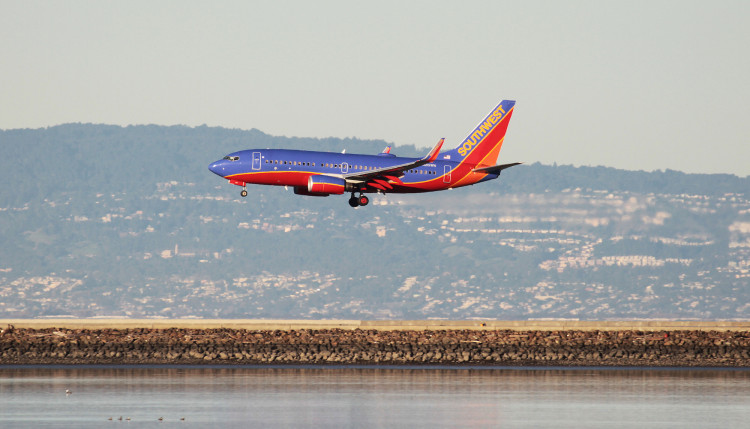Southwest Airlines has raised its third-quarter revenue forecast and announced a $2.5 billion share buyback, signaling a series of strategic shifts as the airline seeks to regain its competitive edge. The announcement, made on Thursday, also included several key updates to Southwest's business model as the company faces growing pressure from activist investor Elliott Investment Management.
The airline, long known for its customer-friendly policies and low-cost flights, now expects a 3% increase in unit revenue for the third quarter compared to the same period last year. This is a notable shift from its earlier projection of a potential 2% decline. The revenue boost is attributed partly to rebooking passengers from other airlines that were disrupted by the CrowdStrike outage in July.
During an investor day presentation held at Southwest's Dallas headquarters, CEO Bob Jordan and other top executives laid out their vision for the airline's future amid rising concerns from Elliott, which has been pushing for leadership changes. One significant move was the appointment of Bob Fornaro, a respected industry veteran and former Spirit Airlines CEO, to Southwest's board. Fornaro's experience with Spirit and his previous work with AirTran, which merged with Southwest in 2011, is expected to help guide the airline through its ongoing transformation.
Jordan and his team aim to reassure investors that Southwest is on the right track to increase revenue and improve profitability. Part of this strategy includes significant changes to Southwest's long-standing business model. For decades, the airline has operated without assigned seating and has offered two free checked bags to all customers, policies that have differentiated it from other major U.S. carriers. While the free baggage policy remains intact, Southwest is now rolling out new initiatives to drive higher revenues.
Among the most dramatic changes is the introduction of assigned seating and extra-legroom options-features that will not fully debut until 2026. These enhancements require Federal Aviation Administration (FAA) approval and time to retrofit existing aircraft. According to Southwest's projections, approximately one-third of its seats will offer extra legroom, with 34 inches of pitch compared to the standard 31 inches. The airline estimates that these upgrades could generate $1.7 billion in earnings before interest and taxes (EBIT) by 2027.
"These changes will bring new revenue streams while maintaining the core values that our customers love," said Jordan during the investor presentation.
The airline's decision to maintain its free checked luggage policy, despite the potential revenue from baggage fees, has also been affirmed. "We believe that offering two free checked bags continues to generate market share gains that outweigh any potential lost revenue," Southwest said in a statement.
However, not all of Southwest's recent moves have been about growth. The company announced it would be cutting back on services in Atlanta, including reducing the number of gates it operates at the Hartsfield-Jackson Atlanta International Airport from 18 to 11 by next April. This decision comes in response to a shortfall of new aircraft, primarily due to delays from Boeing in delivering the 737 Max 7, Southwest's smallest plane. As a result, the airline has also scaled back unprofitable routes that could have benefited from the smaller aircraft.
The cutbacks in Atlanta will likely affect staffing, with over 300 flight attendants and pilots potentially being relocated or reassigned. While the base in Atlanta will remain open, Southwest's unions, including the Southwest Airlines Pilots Association and the Transport Workers Union (TWU) Local 556, have been negotiating the impact on employees. TWU confirmed that the affected flight attendants would not lose their jobs but might need to relocate to other cities.
These adjustments come amid growing calls from Elliott Investment Management for a leadership shakeup. The activist investor has reportedly communicated to Southwest's unions that it wants to see a change at the top, expressing dissatisfaction with CEO Bob Jordan's leadership. Elliott's pressure adds another layer of complexity as the airline navigates both operational and strategic challenges.
In a separate development, Southwest's former CEO and current executive chairman, Gary Kelly, announced plans to step down by the end of next year, fueling further speculation about possible leadership changes. Kelly's departure, combined with Elliott's demands, places additional pressure on Jordan and his executive team to demonstrate a clear path to sustained profitability and growth.





